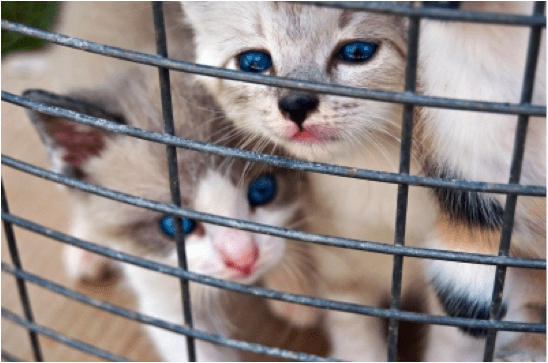This weekend’s paper published a two-page spread, not on the U.S. Republican convention nor on the provincial election in Quebec but on the over-population of cats in urban settings. As the statistics estimated, “between 50,000 and 100,000 cats (not spayed or neutered) roam the city [Winnipeg] at any given time.” Given that homeless and feral cats roam at night when we are asleep, we often don’t witness the problem. Unfortunately, these fertile, unvaccinated cats breed multiple babies and spread diseases throughout our neighbourhoods (i.e., feline distemper in raccoons). Even more unfortunate are the numbers that starve, freeze, get eaten by predators or are euthanized because of overcrowded conditions at pet shelters.
However, the cats are not the problem. They are just doing what any animal and human requires when left to fend for themselves on the streets of an urban jungle. They are attempting to survive. So what is the real problem here? What is at the source of our over-population of homeless and feral cats?
Personally, I rescued five cats over the past five years (4 kittens and 1 adult) from pet owners living on my street. Just this weekend, I retrieved a kitten that had been left alone and outside for 24 hours. Last summer, a very gaunt, less-than-a-year-old female and her kitten adopted me choosing to leave their less than ideal home conditions. The previous winter, someone moved out of the apartment block and neglected to take their kitten, who miraculously managed to live under my deck for a week-long cold snap (-30 degrees) before I discovered her.
What all my pet-rescue stories shared in common were their pet owners. As a society, we must recognize the over-population of urban homeless and feral cats grew out of similar stories. I think it is fair to say that, just as not all adults (even though they can) are suited to parenthood, not all people are suited to the healthy nurturing and caretaking required by a pet.
Just as with any responsibility (job, project, relationship), a combination of willingness and ability is required. Willingness implies the desire and confidence to do what is necessary while ability relates to the specific knowledge and skills to do the job well. In the case of cat ownership, ask yourself these questions when considering your willingness and ability –
Can I love and nurture a cat even if its personality does not suit mine?
Will I take the initiative to ensure the cat is exercised and properly trained?
What information do I need a) before acquiring a cat and b) to keep it healthy during its lifetime with me?
What consistent skills are required on my part in order to raise a healthy happy feline?
What provisions have I made should I no longer be able to care for the cat?
Am I still willing to bring a cat into my life and home?
Life is precious no matter whether feline or human. I appeal to you to take responsibility in some small way for relieving the abuse of our feline friends. What one action can you take today to begin to counter this very serious social ignorance?
Source:
Turner, Randy. 2012. City’s Kitty Crisis, Winnipeg Free Press, J1, September 01.





